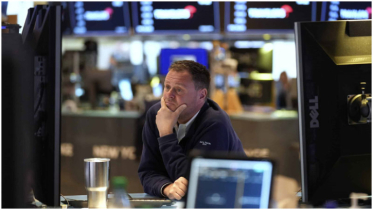Consumers, not factories, are carrying the global economy

The world economy shows increasing signs of cruising on one engine, relying on services for momentum as factories from Japan to the US slow production lines and struggle to clinch orders.
Surveys of manufacturing purchasing managers released Friday signalled contraction across major economies, with the US index hitting its low for the year so far. The euro-area equivalent for June slid more than economists anticipated, to the lowest level in more than three years.
With consumers shifting their focus to services, the goods side of the global economy is struggling with excess inventories. And the most aggressive interest-rate hikes in decades by the Federal Reserve and Europe's central banks have made it much costlier to fund capital spending.
The news sent stocks sliding and government bonds climbing across global markets, after a notable run-up in equities stoked by enthusiasm over the booming AI industry. With central banks still signalling that they will keep raising rates to quell inflation, short-term yields fell less than longer-term ones — a classic recessionary signal.
Germany's yield curve has reached its most inverted point since 1992, while UK two-year yields exceed 10-year rates by a magnitude unseen since 2000. US two-year yields offered more than a percentage point over 10-year ones as of Friday morning. Meantime, the S&P 500 Index was down 0.7% as of 10:38am in New York.
The gloom evident in the manufacturing PMIs and many financial assets contrasted with an assessment late Thursday by Treasury Secretary Janet Yellen that recession risks in the US have declined.
"My odds of it, if anything, have gone down — because look at the resilience of the labour market, and inflation is coming down," she said in an interview in Paris.
Her judgment dovetails with that of many economists. A Bloomberg survey published Friday showed that the consensus now is that the US will dodge a recession this year — though underlying inflation will be faster than previously thought.
"We still forecast, for the near term, decent growth this year — 2.8% this year globally, 3% next," Neil Brown, head of equities at GIB Asset Management, told Bloomberg Television. Still, "we see fragile growth. We need to be cautious about the risk of recession."
The S&P Global US manufacturing PMI dropped to 46.3 in June, well below the 50 mark that signifies the dividing line between expansion and contraction.
"We don't think this data has immediate implications" for the Fed's July policy decision, Ian Lyngen, head of US rates strategy at BMO Capital Markets, wrote in a note. For that, he said he'd be looking at the June jobs and inflation reports. "Nonetheless, it was a disappointing print."
China's manufacturing PMI, due 29 June, are also forecast to show a contraction, while Germany's Ifo index of business sentiment is projected to drop, adding to evidence of a stuttering in global manufacturing.
A synchronised decline in the world factory complex as it enters the second half of the year would leave advanced-economy consumers ever more in the driving seat of global growth as they binge on services denied them during years of pandemic.
"An increasingly severe downturn in new orders mean factories are running out of work," Chris Williamson, chief business economist at S&P Global Market Intelligence, said in a statement. "The question remains as to how resilient service-sector growth can be in the face of the manufacturing decline and the lagged effect of prior rate hikes."
For central banks, it complicates the job of deciding how much further to go in raising rates.
"The Fed does want to see the economy slow, because only then can we see a slowdown in the inflation equation which is really the only component the Fed can control," Lindsey Piegza, chief economist at Stifel Nicolaus & Co Inc told Bloomberg Television. "We may not see an extremely deep or prolonged downturn in the US, but we do need to see that slowdown."—Bloomberg
.png)




